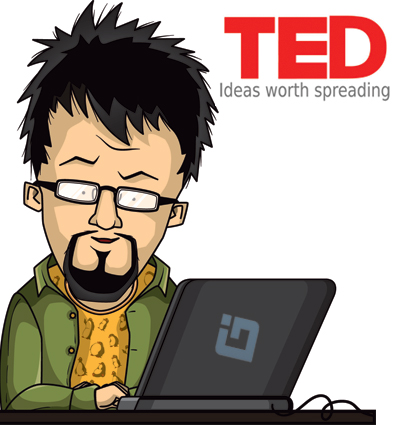 TED, which stands for “Technology, Entertainment, Design,” is a set of conferences with the stated aim of showcasing “ideas worth spreading.” The conferences were founded in 1984 by graphic designer Richard Saul Wurman, and from those very early days the emphasis was on technology and its related topics.
TED, which stands for “Technology, Entertainment, Design,” is a set of conferences with the stated aim of showcasing “ideas worth spreading.” The conferences were founded in 1984 by graphic designer Richard Saul Wurman, and from those very early days the emphasis was on technology and its related topics.
It wasn’t until 2006 that the talks took a real hold on the public conscious, when they began to be streamed for free online (via TED.com). As of November 2012 TED talks have been viewed over 1 billion times online. Some notable names who have given talks since they moved online are: Bill Gates (founded Microsoft), Stephen Wolfram (created Mathmatica), and J. J. Abrams (the film director).
There are TED talks for almost everyone, we bring you 5 TED talks every developer should watch:
- Kevin Kelly on the next 5,000 days of the web. Kevin Kelly founded Wire magazine, and in this video he speculates about the future of the web. His ideas and thoughts will have huge ramifications for every developer. Well worth a watch.
- John Underkoffler on gesture-based computing. This talk might be 3 years old now, but John Underkoffler’s ideas on gesture interfaces (he created everything you see in the Minority Report film) are still valid today, and will make all developers think about how people can interact with their creations.
- Jeff Hawkins: How brain science will change computing. Jeff explains how the more we understand the human brain, the more we need to rethink the future of computing. Will change your ideas of what computing can be.
- Kevin Slavin: How algorithms shape our world. This talk looks at algorithms, and explains that they aren’t just something programmers need to know to write code, but actually are all around us in everyday life.
- Mitch Resnick: Let’s teach kids to code. This is a fascinating look at how children of the future could actually be better off learning to code, rather than learning French, Spanish, or other foreign languages. This talk is given by the director of the Lifelong Kindergarten group at MIT Media Lab.